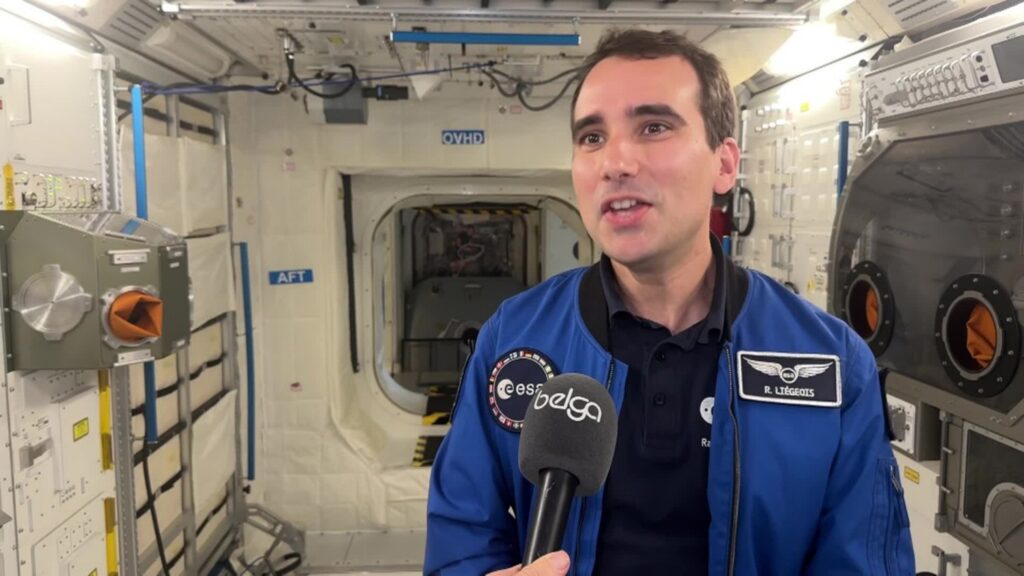Belgian astronaut Raphaël Liégeois will undertake three Belgian experiments during his first space mission aboard the International Space Station (ISS) in 2026.
The Belgian experiments were selected by the Federal Science Policy Office (BELSPO), with the support of the European Space Agency (ESA).
The University of Namur will focus on the 'BeBlob' project, studying a highly resilient slime mould known as Physarum polycephalum. The aim is to understand its ability to regenerate after exposure to extreme conditions, including dehydration and space radiation, thus gaining insights into DNA repair mechanisms and cellular stress response.
UCLouvain, together with the Royal Belgian Institute for Space Aeronomy and UHasselt, has developed 'Oscar-Blinq', a quantum sensor platform using (nano)diamonds to explore chemical reactions in microgravity.
Developed by VIB-UGent, the 'Astromy' project will investigate how microgravity affects maize growth by examining the genetic mechanisms that regulate the development of cells in the plant's aerial parts, It will potentially offer insights into plant growth in extreme conditions and how to improve crop resilience to climate change, according to BELSPO.

